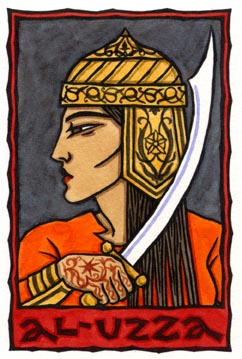Muslim celebrated Shab-e-Qadr or the night of Destiny or the night of Power on the last Wednesday. Shab-e-Qadr is believed to be the night when the Quran was first revealed. Muslims believe that revelation of the Quran occurred in two phases, first revelation of the entire Quran came from Allah to the angel Gabriel in the lowest heaven , then the verses were transmitted through the angel Gabriel to Muhammad, a camel driver on Earth. Muhammad received revelations while he was sitting at the cave of Hira on Mount Nur in Mecca, in 610 CE. Millions of Muslims pray as much as they can on the night of Shab-e-Qadr. It is believed to be the night when God descends to the lowest heaven and decides the destiny of everyone.

I have been very curious to learn what the lowest heaven is, and where it is located.
The Quran says, ‘Have not those who disbelieve known that the heavens and the earth were of one piece, then We parted them, and we made every living thing of water? Will they not then believe?(Quran 021.030), And we have made the sky a roof withheld (from them). Yet they turn away from its portents. (Quran 021.032),,And the sky He hath uplifted; and He hath set the measure.(Quran 055.007), Allah it is Who raised up the heavens without visible supports. (Quran 013.002), He raised the height thereof and ordered it. (Quran 079.028)’
There are seven heavens. Allah descends to the lowest heaven every night. The Sahih hadith says: ‘the prophet said : The Lord descends every night to the lowest heaven when one-third of the night remains and says: ‘Who will call upon Me, that I may answer Him? Who will ask of Me, that I may give him? Who will seek My forgiveness, that I may forgive him?'(al-Bukhaari, Kitaab al-Tawheed, 6940; Muslim, Salaat al-Musaafireen, 1262)
Not only during Shab-e-Qadr, during Shab-e-Barat, or Mid-Sha’ban, Allah descends to the lowest heaven to see what is happening on Earth, whether everyone praying to him. Allah writes the destinies of all for the coming year by taking into account the deeds committed by them in the past. It is believed that the lowest heaven is the most nearest heaven to earth. Allah can see what is going on Earth much better from the lowest heaven. From his arsh or throne, the place where he stays in most of his times, Allah doesn’t see things well. Shab-e-Barat or the night of records, or the night of assignment or the night of deliverance, or the night of observance involves a festive nightlong prayers. Muslims believe that on that particular night the doors of mercy and forgiveness are opened wide, and those who sincerely grieve over and repent for their past sins and seek forgiveness from Allah are pardoned and forgiven. The night of Shab-e-barat is the greatest night for sinners and criminals because all their crimes are forgiven by the almighty merciful Allah. They do not care much about judicial system on Earth. Life on Earth is temporary anyway. A night-long prayer and Allah’s assurance of forgiveness give them the strength to go on committing further crimes until the next Shab-e-Qadr or Shab-e-Barat, the great nights of prayers and forgiveness arrive.
Yesterday I asked some educated and clever Muslims, where is the lowest heaven?
They said, nearest.
I asked again, nearest to what? earth?
They said, yes.
-Somewhere between moon and earth?
(silence)
-On the Asteroids passing close to Earth?
(silence)
I said, okay, leave it.
They were happy.
But I was not happy. I asked, why does Allah need to descend to the lowest heaven to see who are praying and who are not? Can’t he see them clearly from the place he lives?
One of them said, probably..
I asked, probably what?
He smiled nervously.
I said, man, use your brains!
After a few minutes he looked more confident. He said, Allah descends to the lowest heaven because it is night, it’s too dark outside to see things. In this kind of situation it is better to come closer to the objects you want to see.
I smiled and said, you are right.


























